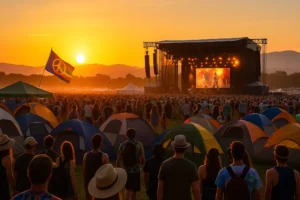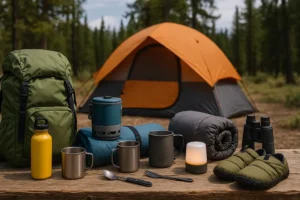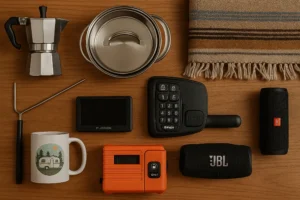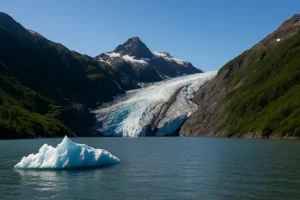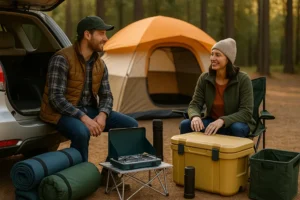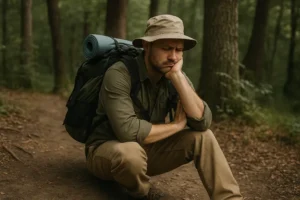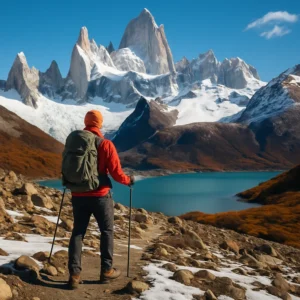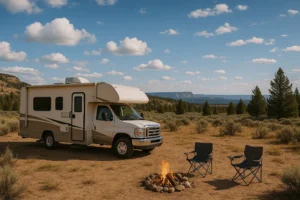There’s something magical about waking up to crisp morning air, birdsong, and the soft crackle of a campfire. But if you’re new to the outdoors—or simply don’t have space for a garage full of tents and cookware—buying all that gear can feel daunting. That’s where renting camping equipment steps in. In fact, one of the smartest moves any camper can make is learning the best tips for renting camping equipment for a trip. It’s cost-effective, sustainable, and takes the stress out of preparation.
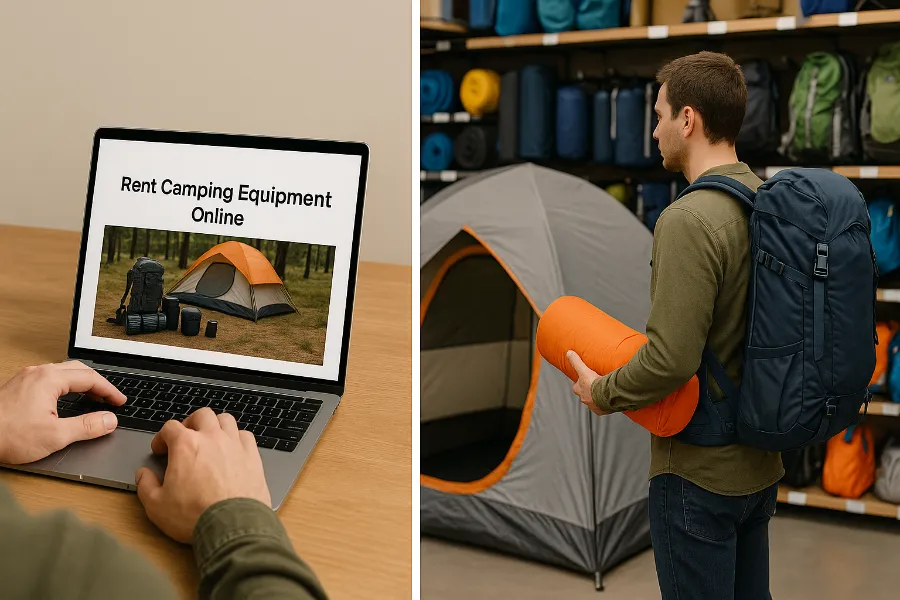
Whether you’re planning a cozy weekend under the stars or tackling a backcountry trail, these expert tips will help you rent with confidence and camp like a pro.
Why Renting Camping Equipment Makes Sense
Let’s be honest: camping gear can be expensive. A high-quality tent, sleeping bag, and stove can easily cost hundreds—or even thousands—of dollars. Renting lets you experience the outdoors without draining your bank account.
Here’s why more travelers are turning to rentals:
- You save money upfront. Renting is perfect if you only camp a few times a year.
- You save storage space. No more cramming tents and coolers into already packed closets.
- You can try before you buy. Renting lets you test different brands and gear styles before committing.
- You travel lighter. Especially for trips involving flights, renting near your destination saves you baggage fees and headaches.
- It’s more sustainable. Renting reduces waste and the demand for new manufacturing, which helps the planet.
In short, renting is a smart, eco-friendly, and wallet-conscious choice for both new and seasoned campers.
Types of Camping Equipment You Can Rent
When it comes to camping rentals, your options are far broader than you might think. Here’s what you can typically rent from reputable companies:
Essential Gear
- Tents: From lightweight backpacking shelters to family-sized glamping tents.
- Sleeping bags and pads: Choose based on temperature rating and comfort level.
- Backpacks: Ideal for both day hikes and multi-day treks.
Cooking & Lighting Equipment
- Camp stoves and cookware: Many rentals include fuel, pots, pans, and utensils.
- Lanterns and headlamps: Crucial for night visibility.
- Coolers: Great for weekend car camping trips.
Specialized Gear
- Family kits: Complete setups for multiple campers.
- Backpacking kits: Lightweight gear designed for long-distance hikes.
- Glamping packages: Includes luxury tents, air mattresses, and décor.
Extras & Accessories
- Camp chairs, hammocks, trekking poles, GPS units, and even kayaks or paddleboards in some cases.
When selecting, think about your destination, group size, and level of comfort. Most rental companies will bundle essential gear into convenient “kits,” saving you time and research.
How to Choose the Right Rental Company
Picking the right rental company can make or break your experience. The best companies offer high-quality, well-maintained gear, transparent pricing, and flexible rental terms.
Here’s what to look for:
- Online vs. Local Rentals
Online companies like Outdoors Geek, LowerGear, and Xscape Pod ship rentals directly to your door or destination. Local outfitters, such as REI or regional gear shops, often allow same-day pickup. If you’re traveling by car, local rentals may be more convenient. - Check the Gear Quality
Read reviews and look for details on how often the gear is inspected or replaced. Companies that post photos and specs are usually more reliable. - Understand the Rental Policy
Watch for details like:- Delivery and return process
- Deposit and damage waiver requirements
- Cancellation or rescheduling flexibility
- Ask About Support
A good company will walk you through setup instructions or even provide videos. - Eco-Friendly Options
Some companies, like Kit Lender, emphasize sustainability through gear recycling and minimal packaging—perfect if you care about reducing your footprint.
Key Tips for Renting Camping Equipment for a Trip
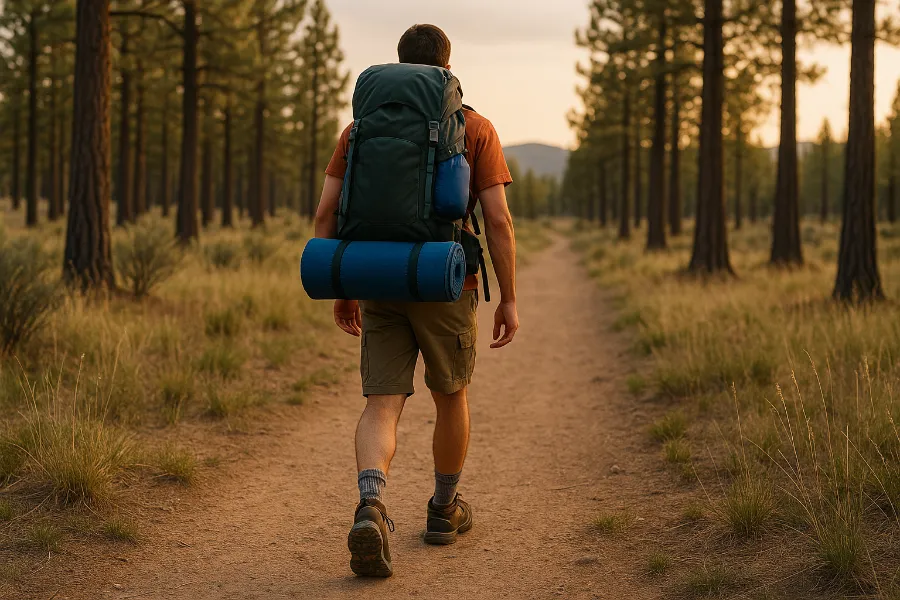
Now that you know the basics, let’s dive into the heart of it—the best tips for renting camping equipment for a trip that’ll save you money, time, and frustration.
1. Book Early
Popular gear gets reserved fast, especially in summer. Book a few weeks ahead to guarantee availability—especially for family kits or special sizes.
2. Know What’s Included
Not all packages are created equal. Some may lack essentials like cooking fuel, batteries, or ground tarps. Always check the full list before confirming your order.
3. Inspect Everything Before You Leave
Set up the tent, test the stove, check zippers, straps, and lights. If something’s damaged or missing, contact the company immediately.
4. Test Your Gear at Home
Even if it’s a quick setup in your backyard, testing helps ensure you understand how each item works. The last place you want to figure out a broken tent pole is in the rain at midnight.
5. Keep It Clean
Treat rentals as if they’re your own. Clean off dirt, dry out tents before packing, and repack neatly. Returning gear in good condition prevents fees and ensures better service next time.
6. Understand Fees and Deposits
Some companies hold a refundable deposit, while others charge for insurance or damage waivers. Read the fine print carefully to avoid surprises.
7. Plan for Delivery and Return Timing
If gear is shipped to you, confirm arrival a few days before departure. Likewise, plan when and how you’ll return it—especially if you’ll be traveling between destinations.
8. Ask for Recommendations
Rental companies know their gear best. Don’t hesitate to ask which tent works for windy conditions or which sleeping bag fits a cooler climate.
Best Places to Rent Camping Equipment
Here’s a quick look at some of the top-rated gear rental companies worth checking out:
| Company | Specialty | Highlights |
|---|---|---|
| REI Rentals | National retailer | Affordable rates, member discounts, easy pickup |
| Outdoors Geek | Full-service camping & glamping gear | Ships nationwide, great for large setups |
| Xscape Pod | Compact gear “pods” | Perfect for road trips, free shipping over $349 |
| Kit Lender | Apparel & family kits | Great for families and kids |
| LowerGear Outdoors | Wide range of outdoor rentals | Excellent for backpacking and kayaking trips |
Each has different strengths—choose based on your destination, budget, and preferred camping style.
How to Pack and Prepare for Your Trip
Once your gear arrives, it’s prep time! Here’s how to make sure you’re ready:
- Create a personal packing list. Rental packages often skip personal items like toiletries, clothes, or first-aid kits.
- Label your own gear. If you’re mixing rented and personal equipment, labeling helps during cleanup.
- Plan meals ahead. Rental cookware simplifies cooking, but plan simple, easy-to-prep meals.
- Pack strategically. Keep heavy items like stoves and water bottles at the bottom of your backpack.
Pro tip: always check the weather forecast and pack accordingly. Renting a 30°F sleeping bag for a 50°F night might sound cozy—but renting a summer bag for cold mountain weather? Not so fun.
Common Mistakes to Avoid When Renting Camping Equipment
Even the most organized campers make mistakes. Avoid these common pitfalls:
- Ignoring setup tutorials. Watch the company’s videos or ask for setup guides.
- Not testing gear in advance. Always do a dry run before you leave.
- Forgetting small accessories. Think headlamp batteries, matches, or cookware lids.
- Overpacking. Rental gear can be bulky—don’t duplicate items you already have.
- Returning gear late. Late fees can add up fast; mark your return date clearly.
Renting should simplify your trip, not complicate it—attention to detail makes all the difference.
Final Thoughts
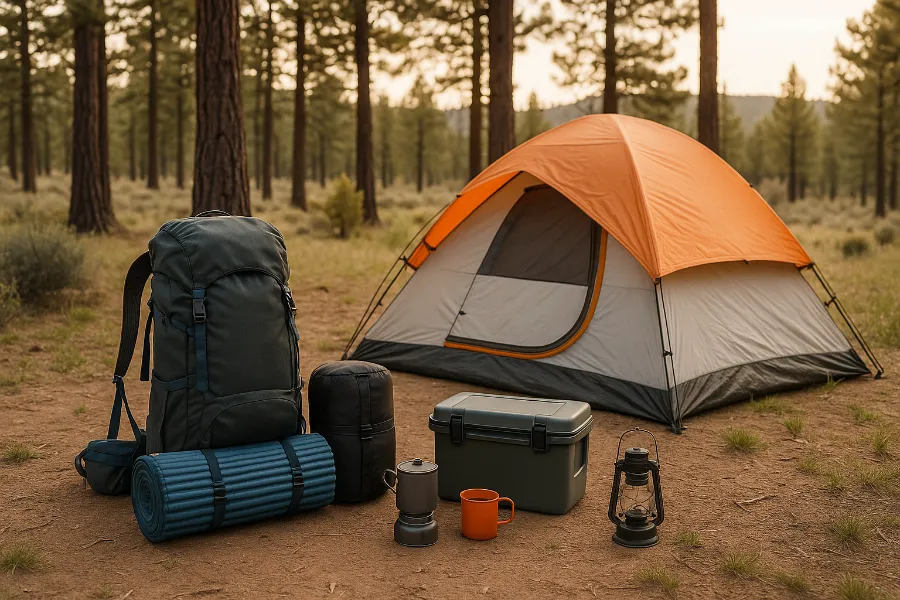
Renting camping equipment is one of the best-kept secrets in the outdoor world. It’s flexible, affordable, and incredibly convenient—whether you’re car camping with friends or flying across the country for a hiking adventure.
By following these tips for renting camping equipment for a trip, you’ll save money, avoid hassle, and still enjoy all the adventure that nature has to offer. The key is planning ahead, asking questions, and treating your rental gear with care.
So go ahead—book your gear, pack your bags, and get ready to wake up beneath the stars. The outdoors is waiting, and now you know exactly how to rent your way there.

